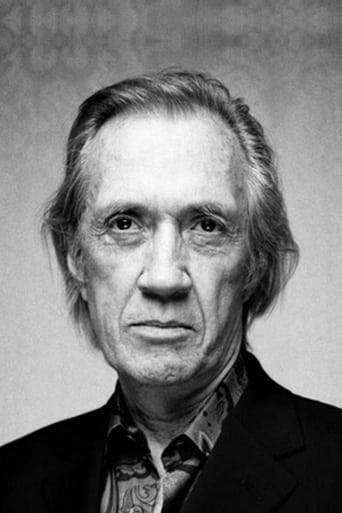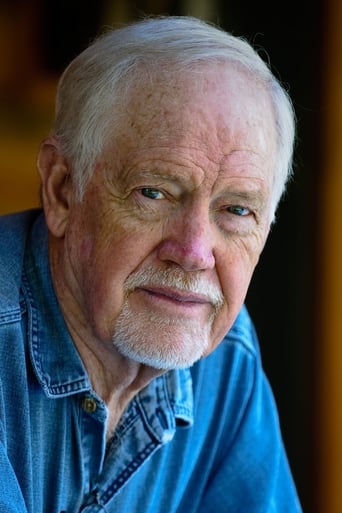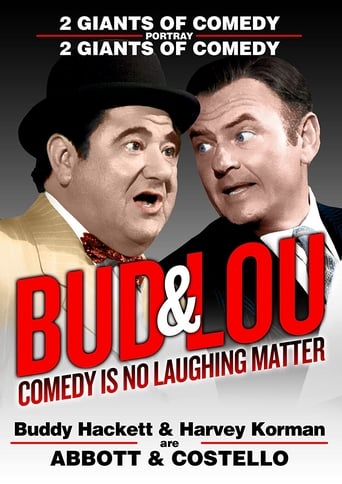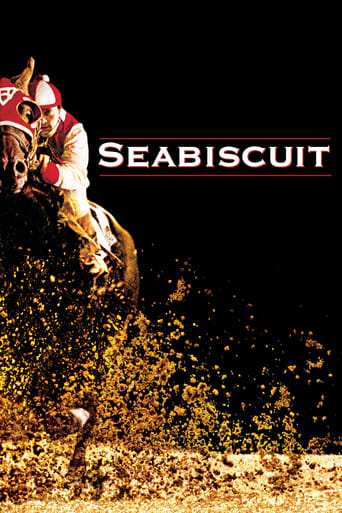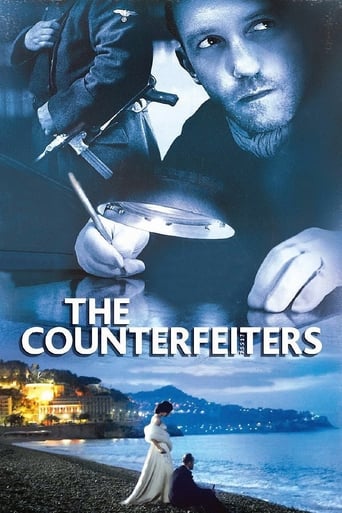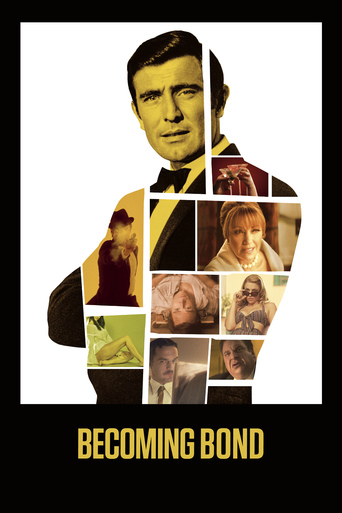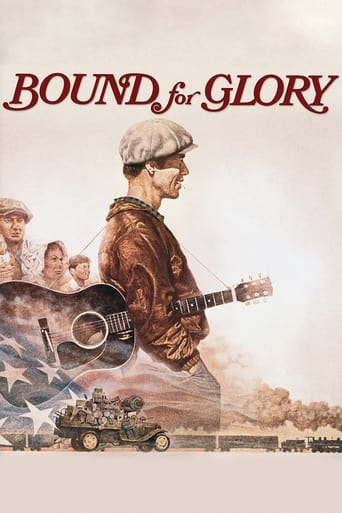
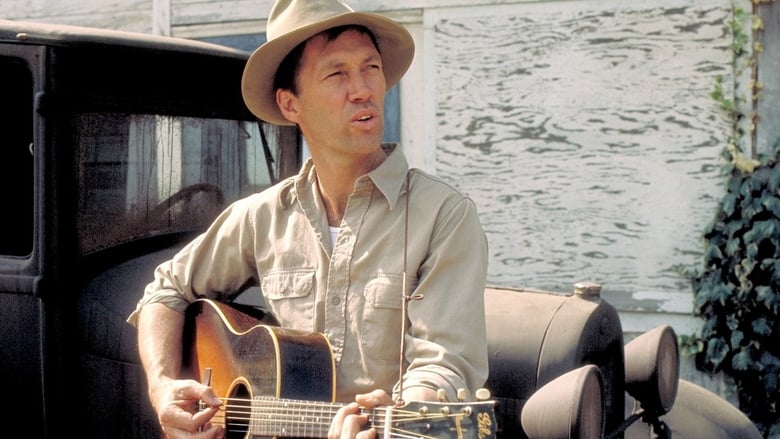
Bound for Glory (1976)
A biography of Woody Guthrie, one of America's greatest folk singers. He left his dust-devastated Texas home in the 1930s to find work, discovering the suffering and strength of America's working class.
Watch Trailer
Cast


Similar titles
Reviews
the audience applauded
Sick Product of a Sick System
A different way of telling a story
The film creates a perfect balance between action and depth of basic needs, in the midst of an infertile atmosphere.
It is 1936 in Pampa, Texas during the oppressive Dust Bowl. Work is hardly available, even for 24 year-old sign-painter Woody Guthrie (David Carradine), who doesn't seem to mind as he spends time with his friends and singing and playing the guitar. Woody's first wife, long-suffering Mary (Melinda Dillon), is most concerned about the lack of cash for the growing family (two little girls thus far). After a dust storm strikes, Woody simply packs up and heads for California, where jobs are supposedly plentiful. He leaves a note for Mary, "Going to California. Will send for you all." Constantly struck with wanderlust (as we shall see), Woody is really a drifter. So Woody, along with many hobos of the Great Depression, hitchhikes and rides the rails on his journey. By the way, this is the largest migration in US history. Along the way Woody lives in migrant worker camps and "Hoovervilles." Along his travels he meets all kinds of characters, including Slim Snedeger (Ji-Tu Cumbuka) and unionizing folk singer Ozark Bule (Ronny Cox). At a migrant camp Ozark and Woody sing and extort the workers to unionize until thugs arrive and break up the gathering. As Woody observes the miserable plight of many Americans, his social conscience is so raised that he composes and sings many of his folk songs. Note the memorable scene atop a boxcar where Woody plunks away at his guitar while he composes the words to "This Land Is Your Land." Later on there is another set where Woody waltzes into a factory and exhorts the workers to unionize; he is promptly beaten up by security folks. Ozark Bule helps Woody to get a radio job at KTNS for twenty dollars a week. Most of the mail from listeners is positive, and Woody and singing partner Memphis Sue (Melinda Dillon again) get an offer of thirty-five dollars weekly. Station manager Locke (John Lehne), concerned about his new sponsors, tells Woody not to sing any controversial songs. After all, the sponsors pay for what they want to hear, and they do not want provocative subject matter. But there really is no compromise for Woody. Note that this scene is really inaccurate, as Woody was really advocating support of the Soviet Union. (Then when Russia's Stalin signed the August 1939 non-aggression pact with Nazi Germany, the leftists were stunned and . . . Oh, never mind!)An agent, Baker (Bernie Kopell), plans on getting Woody an offer to play for CBS as long as his songs are not controversial. No thanks! And as there is no middle ground, it is time for the detached Woody to move on. Ultimately Woody will work his way to New York where there are many people and unions who will hear the message of his music. Woody is destined to gain even greater acclaim than previously. The movie focus is on a slice of Woody's life (1936-1940), loosely based upon his 1943 autobiography. The famous folk singer-songwriter and musician is flawed and neglectful of his family, even after he relocates them to California. Although married, he was a notorious womanizer. In his real life the detached Woody had three wives and seven children (son Arlo was not born until 1947). But Woody inspired folks who had nothing except hope; he said one's skin color is not important. Despite his defects he remained idealistic and gave up various monetary offers. Still, he was not an easy man to live with. The songs, performed by David Carradine, include "This Train Is Bound for Glory," "Talking Dust Bowl Blues," "I Ain't Got No Home," and of course the famous "This Land Is Your Land." The feature may be slow-paced, but there are also impressive golden-colored cinematography and scenic views. There are also authentic and stunning period details, like the shabby frame houses and jalopies. The acting is natural; Carradine is very good as the folk singer who never surrenders his deeply felt convictions. In fact in this movie Carradine is Woody. "Bound for Glory" received an Oscar nomination for Best Picture, but understandably lost out to "Rocky," a "top 100 of all time" movie.
This biopic starts in 1936. Woody Guthrie (David Carradine) is struggling in the dusty small town of Pampa, Texas with his wife Mary (Melinda Dillon). Jobs are hard to find and everybody is looking to leave for California. He runs off to ride the rails and becomes one of the most influential folk singers.This is limited in excitement and tension. It's a quiet easy movie. It's quietness takes away some of the emotions in the movie. David Carradine is putting in a simple nice guy performance. There are some inventive camera work using the new steadycam. The look of the movie is one of faded dusty postcard. It's a pretty and interesting movie to look but it's not much more than that. It's a long winding road.
I expect it took the counter-cultural period of the 60's and 70's to get a slice of Guthrie's life onto the big screen. After all, the folk singer was not only a union radical but pro-soviet as well. I can imagine how old Hollywood would have sanitized the script on the off chance of dealing with his life story.Here, Guthrie's turned into a prairie populist, evolving from dust bowl hobo to union organizer, armed with a guitar and a talent for turning words into music. At 2-hours plus, the movie is drawn out but never drags. In fact, the first hour is a pip as we get an unvarnished look at the down home poverty— the rickety shacks, the overloaded flivvers, the rail yard bulls, but most of all, the gritty people just trying to survive a world turned suddenly against them. It's well done, without rubbing your nose in it.The scene that stays with me, however, is not like anything I've seen. It's the damaged fat guy who shambles up to sign-painter Guthrie and stammers about needing brushes to paint the pictures in his head. The scene's a beautifully composed blend of humanity and understanding as the human lump shambles off, with new paint brushes in hand, while we realize Guthrie's an instinctive man of the people.No need to repeat the consensus points made by others. I'm just glad the film brought this neglected figure to popular audiences, along with his music. It's a fine period piece about an America that, despite the years, has never really left us.
Bound for Glory (1976) *** 1/2 (out of 4) Excellent biography of Woody Guthrie (David Carradine) who leaves his Oklahoma home when he sees no future there and travels to California where he sees nothing but poor workers being mistreated and underpaid. Guthrie finally picks up a guitar and begins to write songs about what he's seeing in hopes that it can change how things are. Hal Ashby's BOUND FOR GLORY is a very slow-paced film that really doesn't appear to be about anything. As with most of Ashby's films, this one here takes its time getting told and if you barely looked at it you'd think that there wasn't anything going on and that there wasn't any life to the film. The movie takes about ten minutes for the viewer really to settle in and from here on it's quite a powerful movie with a classic performance by Carradine, some terrific movie and some truly wonderful images. The cinematography by Haskell Wexler is among some of the best that you're ever going to see and it perfectly blends with Ashby's masterful direction, which really puts you in the time and place that all of this takes place. The beautiful images of Guthrie riding on the top of trains or the work camps where violence often erupts if "union" is mentioned is perfectly brought to life and you really can't help but feel as if you're watching an actual documentary from the 1930s about the Depression, the Dusk Bowl and this small man who would rise up to do great things. Carradine certainly deserved all the praise he got for his performance because there's not a single moment where you're watching the movie and seeing an actor playing a part. Instead you see Guthrie right up there on the screen doing his thing. Many times actors can't separate themselves when they play a real person but Carradine is so into the character that you really can't help but be amazed. Ronny Cox appears as Ozark Bule, the man who brought Woody into the business and Randy Quaid also has a small role as a picker. As with most bio-pics, you really can't believe everything you're seeing as certain events are going to be changed for a wide range of reasons but that really shouldn't keep anyone from watching the picture. I know many can't stand the slowness that Ashby brought to his films but I think the slow pace actually helps the film because it just seems to fit the times and situations that were going on. At 147-minutes, the film is certainly entertaining from start to finish due to that beautiful cinematography and of course Carradine, the actor and singer.


